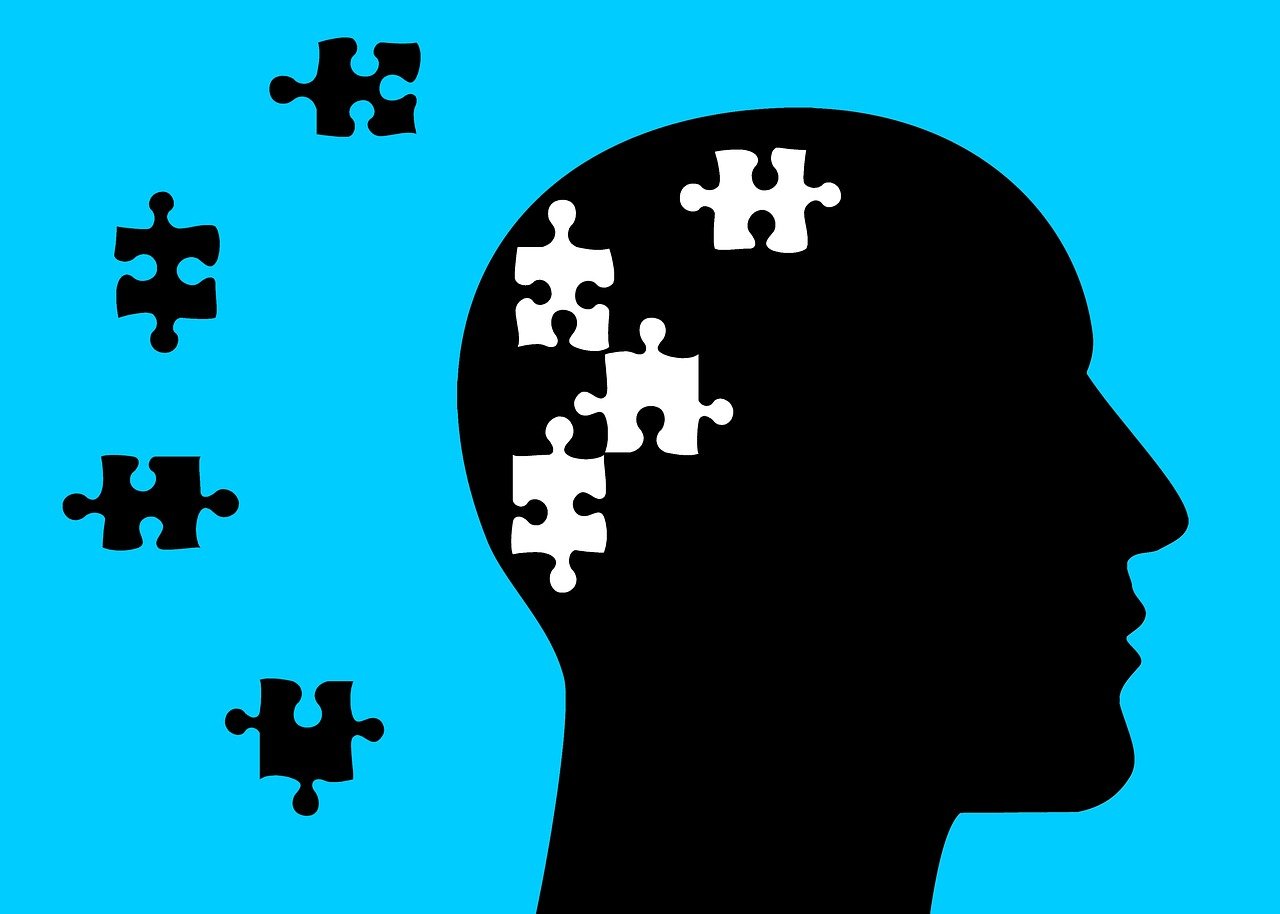What is mental illness and its impact on daily life?
How does mental illness affect individuals’ ability to carry out everyday tasks and maintain a normal lifestyle?
What are the consequences of the stigma associated with mental illness on individuals’ well-being and social inclusion?
Why is it important to address mental health and live a normal life?
How does prioritizing mental health and striving for a normal life contribute to overall well-being and resilience?
What is mental illness and its impact on daily life?
What is mental illness and how does it affect individuals’ daily lives and routines?
What challenges do individuals with mental illness face in maintaining normalcy in their daily activities and responsibilities?
How does mental illness impact individuals’ ability to work, engage in relationships, and participate in social activities?
What are the potential disruptions mental illness can cause in terms of sleep patterns, appetite, and overall functioning?
How does mental illness influence individuals’ emotional well-being, motivation, and overall quality of life?
The stigma surrounding mental illness and its effects on individuals
How does the stigma surrounding mental illness impact individuals’ self-esteem and self-worth?
What are the social consequences of stigma, such as isolation, alienation, and discrimination?
How does the fear of judgment and misunderstanding prevent individuals from seeking help and support?
What are the psychological effects of stigma, such as feelings of shame, guilt, and internalized negative beliefs?
Does the stigma surrounding mental illness affect individuals’ access to employment, education, and housing opportunities?
Why is it important to address mental health and live a normal life?
What are the benefits of addressing mental health and seeking treatment while maintaining a normal life?
How does living a normal life contribute to individuals’ overall well-being and quality of life?
What role does self-care and maintaining emotional balance play in managing mental illness?
Why is it important for individuals with mental illness to actively participate in social activities and maintain relationships?
How does living a normal life while dealing with a mental illness promote resilience and mental wellness?
Building a Strong Support System
How can family and friends play a crucial role in providing emotional support to individuals with mental illness?
Why is it important for individuals with mental illness to seek professional help through therapy and counseling?
What are the benefits of joining support groups or online communities for individuals with mental illness?
The role of family and friends in providing emotional support
How can family and friends offer emotional support to individuals with mental illness?
What role does active listening, empathy, and understanding play in providing effective emotional support?
How can family and friends assist in creating a safe and non-judgmental environment for individuals with mental illness?
What impact does social connection and a strong support network have on individuals’ well-being and ability to cope with mental illness?
How can family and friends help individuals with mental illness in managing stress and promoting their overall mental health?
Seeking professional help⁚ the importance of therapy and counseling
Why is it important for individuals with mental illness to seek therapy and counseling?
What types of therapy and counseling services are available to support individuals in their journey towards living a normal life?
How can therapy and counseling help individuals develop coping strategies and build resilience?
What role do mental health professionals play in providing guidance, support, and personalized treatment plans?
How can therapy and counseling contribute to individuals’ overall well-being and improve their ability to manage mental illness?
Joining support groups or online communities for individuals with similar experiences
How can joining support groups or online communities benefit individuals dealing with mental illness?
What are the advantages of connecting with others who have similar experiences and challenges?
In what ways can support groups and online communities provide a sense of belonging and reduce feelings of isolation?
How do these groups offer opportunities for sharing experiences, exchanging advice, and providing mutual support?
What role do support groups and online communities play in fostering understanding, empathy, and hope among individuals with mental illness?
Coping Strategies for Daily Life
How can creating and sticking to a routine help individuals with mental illness manage their daily lives more effectively?
What are some practical ways individuals can reduce stress and promote their well-being while living with a mental illness?
What types of therapeutic activities can individuals incorporate into their daily lives to enhance emotional balance and resilience?
Developing and maintaining a routine for stability and structure
Why is it important for individuals with mental illness to establish and stick to a daily routine?
How can a structured routine contribute to stability, productivity, and a sense of normalcy in daily life?
What are some key elements to consider when developing a routine that is tailored to individual needs and preferences?
How does a consistent routine help in managing symptoms, promoting self-discipline, and maintaining overall well-being?
What role does a routine play in creating a sense of control and stability over one’s life while dealing with a mental illness?
Managing stress through relaxation techniques and self-care practices
What are some effective relaxation techniques that individuals with mental illness can incorporate into their daily routine?
How can self-care practices, such as meditation, mindfulness, and deep breathing, help reduce stress levels?
What role does physical exercise, adequate sleep, and healthy lifestyle habits play in managing stress and promoting well-being?
How can individuals identify and implement self-care practices that align with their specific needs and preferences?
What are some other stress-management strategies individuals can utilize to enhance their overall mental health and live a normal life?
Engaging in therapeutic activities to promote emotional balance
Why is it beneficial for individuals with mental illness to engage in therapeutic activities?
What are some examples of therapeutic activities that can help promote emotional balance?
How do creative outlets, such as art, music, and writing, contribute to emotional well-being?
What role does nature, outdoor activities, and physical movement play in maintaining emotional balance?
How can individuals identify and incorporate therapeutic activities that resonate with their interests and provide a sense of emotional nourishment?
Promoting Mental Resilience
How can individuals develop mental resilience by cultivating a positive mindset and adopting healthy habits?
What are strategies individuals can use to identify triggers and prevent relapses while coping with a mental illness?
How does social inclusion and fostering relationships contribute to building mental resilience in individuals with mental illness?
Building mental resilience through positive mindset and healthy habits
How can individuals cultivate a positive mindset to enhance their mental resilience while dealing with a mental illness?
What are some healthy habits that individuals can adopt to support their overall well-being and build mental resilience?
How does practicing self-compassion, optimism, and gratitude contribute to developing a positive mindset?
What role do healthy lifestyle choices, such as regular exercise, nutritious diet, and adequate sleep, play in building mental resilience?
How can individuals incorporate mindfulness, relaxation techniques, and positive affirmations into their daily routine to foster mental resilience?
Identifying triggers and implementing relapse prevention strategies
How can individuals identify triggers that may worsen their mental illness symptoms?
What are some common triggers that individuals with mental illness may encounter?
What strategies can individuals use to prevent relapses and manage triggers effectively?
How does self-awareness and recognizing early warning signs contribute to relapse prevention?
What role does therapy, medication adherence, and ongoing support play in maintaining stability and preventing relapses?
Embracing social inclusion and fostering relationships
How does social inclusion contribute to individuals with mental illness living a normal life?
What are the benefits of fostering supportive relationships and social connections?
How can individuals with mental illness overcome feelings of isolation and build a strong support network?
What role does community involvement, volunteering, and participating in social activities play in promoting well-being?
How can individuals actively cultivate meaningful relationships and socialize while dealing with a mental illness?
Seeking Help and Professional Guidance
How can individuals determine when it is necessary to seek professional help for their mental illness?
What are strategies to overcome the fear and stigma associated with seeking help for mental illness?
Why is it important for individuals with mental illness to have regular check-ups and maintain their mental wellness?
Recognizing when professional intervention is necessary
How can individuals determine when their mental illness requires professional intervention?
What are some signs and symptoms that indicate the need for professional help?
When is it appropriate to seek therapy, counseling, or psychiatric support for mental illness?
What factors should individuals consider when deciding to reach out to a mental health professional?
How can recognizing the need for professional intervention contribute to individuals living a normal life with their mental illness?
Overcoming the fear of seeking help and breaking down barriers
What are strategies individuals can use to overcome the fear and stigma associated with seeking help for mental illness?
How can individuals break down barriers, such as cultural, societal, or personal, that prevent them from seeking professional help?
What role does education, awareness, and destigmatization play in encouraging individuals to seek the help they need?
What support networks and resources are available to individuals to help them navigate the process of seeking help?
How can overcoming the fear of seeking help contribute to individuals’ ability to live a normal life while dealing with a mental illness?
The importance of regular check-ups and mental wellness maintenance
Why is it important for individuals with mental illness to have regular check-ups and maintain their mental wellness?
What are the benefits of ongoing professional support and monitoring in managing mental illness?
How can regular check-ups help individuals track progress, adjust treatment plans, and prevent potential relapses?
What role does medication management, therapy sessions, and self-care play in maintaining mental wellness?
How does prioritizing regular check-ups contribute to individuals living a normal life while dealing with a mental illness?
Reducing Stigma and Raising Awareness
How can educating others about mental health help in reducing stigmatization and promoting understanding?
Sharing personal stories to create empathy and understanding
What impact does sharing personal stories of living with mental illness have on reducing stigma?
Why is it important to advocate for increased mental health resources and support in communities?
Educating others about mental health to combat stigma
How does educating others about mental health contribute to reducing stigmatization and promoting understanding?
What are some effective ways individuals can educate their family, friends, and communities about mental health?
How can sharing accurate information and dispelling misconceptions help in combatting stigma?
What role does promoting empathy, compassion, and open dialogue play in educating others about mental health?
How can educating others about mental health empower individuals with mental illness to live a normal life amidst societal stigmas?
Advocating for mental health resources and support within communities
What are the benefits of advocating for increased mental health resources and support within communities?
How can individuals raise awareness about the importance of accessible and affordable mental health services?
What strategies can individuals use to advocate for policy changes and funding for mental health initiatives?
What role does community engagement and collaboration play in expanding mental health resources?
How does advocating for mental health resources within communities contribute to individuals’ ability to live a normal life with a mental illness?



